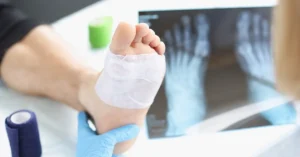Pharmaceutical fraud exists in many ways. Generally speaking, pharma fraud involves a party (or parties) within the pharmaceutical industry who illegally submit false claims to achieve financial gain from unnecessary services or programs. When individuals or organizations commit these crimes, they often force taxpayers to bear the burden of their wrongdoing
Spotting fraud can be complex as many organizations disguise their operations with false hopes that portray good intentions. In this article, we define seven of the most common fraudulent activities in the pharma industry and what to do if you suspect fraud in your organization.
Seven Common Pharma Fraud Tactics
Illegal Kickbacks to Patients and/or Referral Sources
- One of the most common tactics used in the pharmaceutical industry is illegal kickbacks. Kickbacks are anything of value either directly or indirectly offered to a patient or physician that influences their medical decision to use a certain company or product. This action constitutes fraud because it undermines the ethics of our medical community.
Fraudulent Use of KOLs and Speaker Programs
- According to IQVIA, Key Opinion Leaders (KOLs) are “physicians with a professional reputation for far-reaching and high-quality expertise. They are on the cutting edge and, as such, their opinions are highly regarded and their knowledge sought-after by their peers in the healthcare industry.” Fraud occurs when pharmaceutical companies compensate these KOLs based upon their own ability to make referrals for a specific drug or service. This tactic creates a false sense of security for the patient as they are led to believe reputable sources have backed the drug or treatment.
Independent Contractors
- Often many pharmaceutical companies utilize professional medical consultants which are compensated on either a straight commission or a percentage of collections (1099). These financial arrangements depending on how they’re structured may violate the Anti-Kickback Statute. You will see these types of arrangements, not only in the pharmaceutical industry, but in the DME, genetic testing and laboratory services.
Patient Assistance Programs
- One of the more devious tactics used in pharmaceutical fraud involves patient assistance programs (PAP). These programs are funded by pharmaceutical companies that have a self-serving interest in donating to the PAPs. These programs help pharmaceutical companies raise drug prices on the consumer by alleviating the co-pay responsibility of the patient. As drug prices rise the average patient is not capable of meeting the higher co-pays which triggers their enrollment in one of these PAP programs. Often these programs exist to funnel money through the foundations to pay for its own drugs. When this happens it violates the Anti-Kickback Statute.
Physician Buy-and-Bill Programs
- According to the National Board of Prior Authorization Specialists, “Buy-and-bill is a process for physician offices to acquire medications that providers can administer in the office.” In order to induce a physician to purchase their drug, pharmaceutical companies will often offer steep discounts or “Free” samples to offset the cost of the drug. This practice may violate the Anti-Kickback Statute.
Best Price Fraud
- According to the Electronic Code of Federal Regulations, best price refers to “the lowest price available from the manufacturer during the rebate period to any wholesaler, retailer, provider, health maintenance organization, nonprofit entity, or governmental entity in the United States in any pricing structure (including capitated payments), in the same quarter for which the AMP is computed.” Fraud occurs when the pharmaceutical manufacturer inflates the price reported to the government, which decreases the rebate amount.
Off-label Marketing of Drugs
- Off-labeling refers to the practice of marketing drugs or treatments for uses other than those indicated by the Food and Drug Administration (FDA). This tactic constitutes fraud because consumers are led to believe that researchers have thoroughly tested the drugs they are taking to treat their specific condition.
Whistleblower law firms like DJO want to put an end to pharmaceutical fraud tactics that hurt consumers. DJO is comprised of a highly experienced team of whistleblower experts, lawyers, and even former whistleblowers, who strive to deliver the highest monetary reward for brave individuals who have valuable information that can bring fraud to light.
If a whistleblower’s lawsuit is successful, the reward can be between 15% to 25% of the funds recovered. The False Claims Act also offers whistleblowers protection against job retaliation.
DJO will be there every step of the way to ensure you are safe and your information is confidential so you will have confidence knowing you’re doing the right thing. If you have valuable information that can help expose fraud, we encourage you to speak to our experts today.


